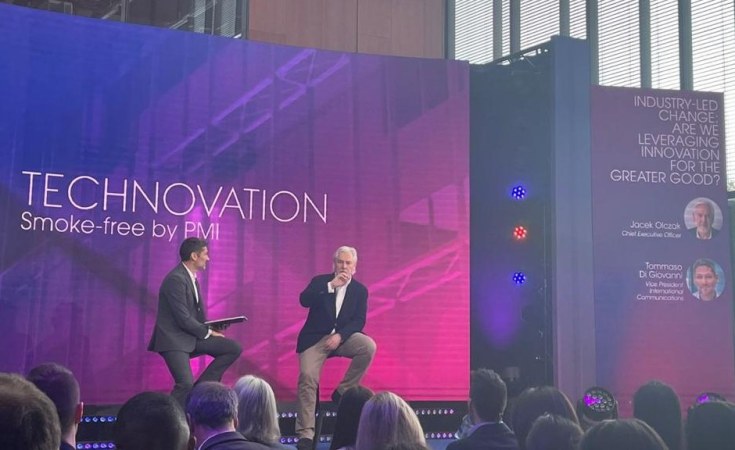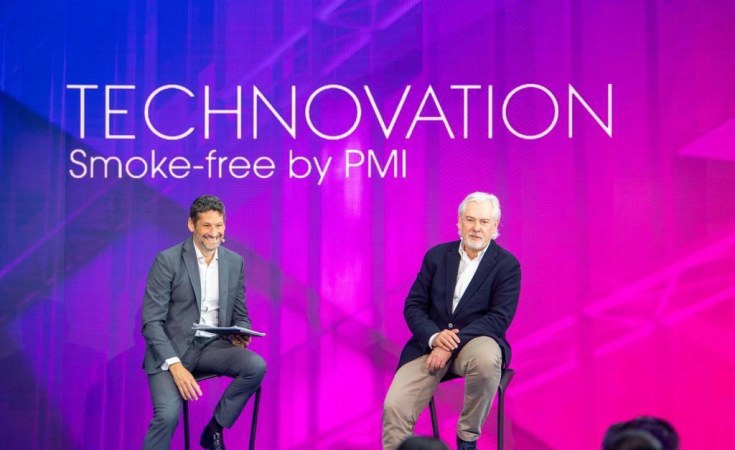Philip Morris International (PMI) held an innovation event called Technovation in its Research and Development headquarters in Neuchatel, Switzerland on May 9th, 2023. Media from all over were invited to participate in this bi-annual rendez-vous where the company discusses new innovations and it's vision as a recent smokeless oriented business.
Their smoke-free products, while not risk-free, are said to represent "a better choice for adult smokers who would otherwise continue to smoke".
PMI, aiming to sell more than 50% of smoke-free products by 2025, mobilized a few of its top management collaborators to update the media on the latest advancement in technology and innovation.
They reiterated PMI's vision of a smoke-free world by demonstrating its accomplishments worldwide where alternatives to traditional tobacco continue to gain ground – 26 million smokers have switched from cigarettes to smokeless products according to their latest research.
Furthermore, PMI's CEO prided the company to have become a more "seductive" place to work (1500 people work there) particularly to scientists who seem to have gained more interest since the company has transformed its vision and translated it into a 10 billion investment in innovation:
"20 years ago, when Philip Morris wanted to recruit scientists, it was extremely hard. The people who help us developing those products would essentially risk their future career as many came from pharma, research institutes…. because of this ill-motivated type of ostracization that you cannot work for the tobacco industry" affirmed Jacek Olczak, PMI's CEO.

Now, it has been a couple of years since PMI started its journey.
However, this change in direction is not to everyone's taste:
"If you look at the history, whoever was coming with something new was confronted by a certain level of skepticism" a dded Jacek Olczak while answering a question about the disbelief raised by their transformation. He, as well, justified this skepticism (the leading opponent to smokeless products is the World Health Organization), by "intellectual laziness or motivated by a strategy".
For some NGOs, scientists and other organizations that fight against the tobacco industry, this is cynicism pushed to extremes. That does not prevent PMI executives from remaining categorical: "There are consequences for not pushing through" said Jacek Olczak, followed by Tommaso Di Giovanni, Vice-President of Communications:
"We are a company. We are quoted at the stock exchange so of course for us to generate profit and revenues is important. But what we try to do is ensure that our success as a business goes together with improvement in society." Tommaso Di Giovanni.
Gizelle Baker, epidemiologist and Vice President of Scientific Engagement in PMI, addressed the necessity to take into consideration the multiplicity and complexity of smokers if "we really want to help them":

"Every smoker smokes for different reasons. If the solutions were simple, you could come out with better, you would put it out there and cigarettes would disappear tomorrow. But despite the fact that we have been talking for 17 years about the fact that smoking kills, there are still over a billion smokers in the world today. We need to address the reasons why people continue to smoke despite the reality that it causes diseases. You can look at the sensory aspects of it, you can look at the taste, the ritual aspect, the nicotine…all of these components come together. If you are able to get the right combination for that smoker, that smoker will be able to switch and ideally never go back to cigarettes".
Are LMICs left Behind?
80% of worldwide smokers live in Low and Middle-Income countries (LMICs).
Out of the 26 million smokers who have switched to PMI's products, 42% live there. Yet, access to these products is not the norm as many countries ban them.
In some of them, mostly Asian, such as the Philippines (a more affordable smoke-free device was launched in the country last November), alternatives to combustible cigarettes are accessible but the majority of the region does not have this possibility.
In Sub-Saharan Africa, South Africa is the only country where regulation allows smokeless products.


